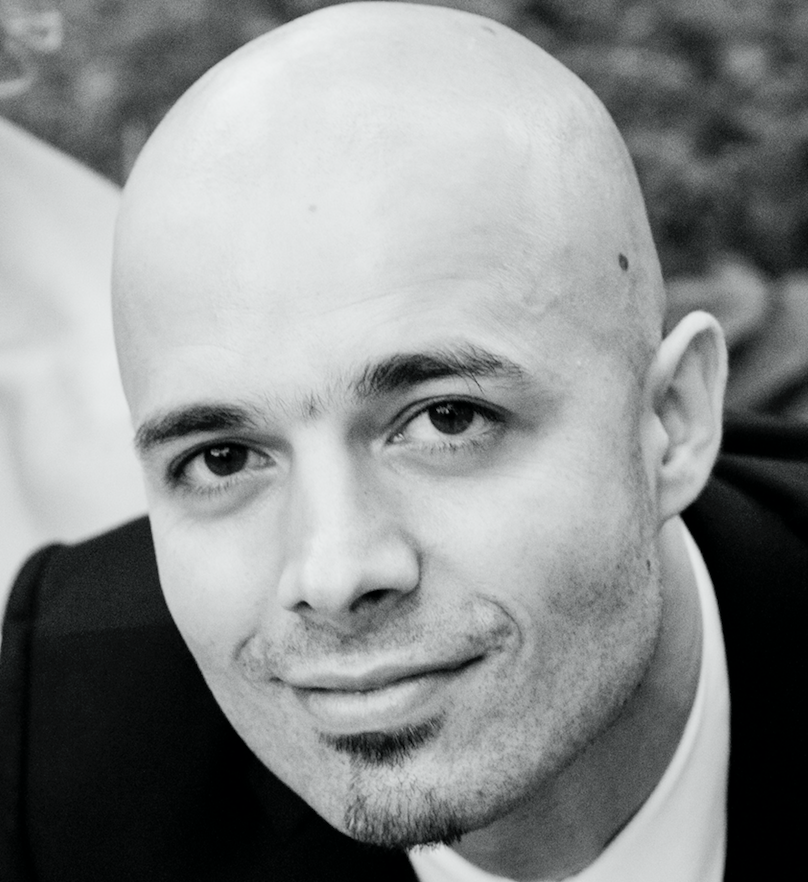Actions vs. Outcomes
I recently did a TEDx Talk. Don’t worry I’m not about to say I was honored to do it. Honored is the wrong way to describe it. It would be an insidious way to say: “Hey I did this TEDx and I want you to watch it to increase my YouTube view count.” And don’t get me wrong - I want people to watch it. I want you to watch it. But it’s not out yet so you can’t.
My participation in TEDx Woodbury High School was an accident. Doing a TEDx Talk was not a bucket list item. I did not do any of the things required for it. I did not apply nor create an entry video. And while I did not “wing it” when the time came you could say I cheated the system. I was asked by Michael, the leader of this student-organized event to do it. I don’t remember how the conversation went exactly but he claimed I “do some interesting things” and “have this unique foreign experience.” My guess is he heard me blasting Iron Maiden in chemistry.
But I wasn’t honored. Rather, I felt ambivalent, apprehensive, and anxious.
What was I scared of?
Not having something important enough to say.
Not being ready in time.
Forgetting what to say.
The audience.
Why was I scared?
I’ve never done anything like this before. It seemed enormous and important.
I’ve never spoken to a crowd of 100-200 people. What if they hate me?
I’ve never tried to convince a crowd of professionals to consider my views. What if they hate what I have to say?
I put a lot of pressure on myself to absolutely kill it. What opportunities can doing this create for me?
Focusing on the Outcome
If you’re one of the few who never experience fear and anxiety stop reading now.
But if you do then it’s entirely possible you often look ahead and visualize what could come to pass as a result of you taking a leap.
The TEDx was a leap for me. Perhaps it’s human nature or perhaps it’s just me but even before agreeing to speak my head filled with grandiose alternate futures in which I was more - more accepted, more recognized, more respected, more expert, more in-demand etc. The problem was that for those grand futures to happen I had to absolutely crush my talk. The topic had to kill it. I had to be funny, smart, and informative. Most of all, I had to murder the other speakers with my delivery. In my mind, the event was a competition I had to win.
Looking at it now I’d be lying if I said I stopped caring about being seen as the best speaker at TEDx Woodbury High School. I am ambitious and push myself toward peak performance and one of the best ways to measure it is by comparing your performance to those of others. This is just as true in the corporate world as it is in sports. But my TEDx journey taught me that focusing on the outcome (or delusions of grandeur) increase anxiety and kill productivity.
Focusing on Actions
As you dream and scheme more neurons wire together and completely forgetting your grand plans that bring on the pressure to perform becomes futile. In fact, forgetting isn’t necessary nor advisable because goals motivate. Getting rid of all anxiety is impossible as evolution outfitted the human brain with the ever threat-detecting, fear-perceiving, and survival-seeking amygdala.
As a result, focusing solely on actions is difficult when you decide to take a big leap into the unknown. But it’s possible. The usual stress-relievers such as sleep, exercise, meditation, deep breathing, and reducing caffeine help but I found two things especially useful: accepting the anxiety (or feeling the fear) and mindfulness.
Feeling the Fear
Fear is an unwanted and unpleasant emotion but it can be understood. Theo Tsaousides Ph.D., a neuropsychologist and author of Brainblocks: Overcoming the Seven Hidden Barriers to Success explains that when fear is real we tend to act immediately, but when it’s imagined, such as in the case of my public talk we often worry a lot and do little.
Thus, to avoid procrastination it may be best to simply accept anxiety as a human condition but realize that most fears you experience are figments of your imagination.
I found asking myself What’s the worst thing that can happen? and imagining it to be a good strategy for controlling anxiety and preventing the procrastination it induces. For example, I was able to (correctly) convince myself that my audience would be very receptive and the chances of it hating me were slim. This motivated me to keep improving my talk, to practice it every day, and to create a memory palace as a memory fail safe in case I froze or got stuck in the midst of my talk (which never happened).
Conversing with your future self and asking If I were to fail at it, how much will this perceived enormous endeavor matter a week, a month, a year from now? is very helpful toward realization that the actual outcomes are never as bad as you anticipate.
Mindfulness
Integrative Medicine defines mindfulness as the awareness that emerges by way of paying attention on purpose, in the present moment, and nonjudgmentally to the unfolding of experience moment by moment.
As such, being mindful includes focusing on the moment and completing the task at hand. When preparing for TEDx Woodbury I alleviated a lot of the self-induced pressure by reminding myself of the purpose of my talk which was to inspire parents, teachers, and other education professionals to consider a few different, non-traditional views on schooling. I simply wanted to show others that changing the school culture to help students be more successful in the future isn’t all that tricky. Shifting focus in this way allowed me to focus on writing a better presentation and gave me more confidence.
Evidence-based research shows mindfulness as an effective prescription for anxiety.
It is also important to realize that looking at the possible outcomes in advance can lead to making emotional decisions or decisions driven by the excitement of the moment.
The Outcome
I killed that TEDx Talk. I haven’t seen it yet but I felt it. It wasn’t perfect but it felt really good. I don’t know if mine was the best presentation but I got a lot of positive feedback afterwards.
I was anxious for two weeks prior to it. I was anxious the day of. I got there three hours early and I was anxious still. I was anxious in the green room. When they asked me to run through my speech to time myself I was so anxious I kept stumbling through it and forgetting. I was anxious and breathing deeply when waiting in the queue behind the curtain to go on next.
Then I was introduced and given the clicker. I came on stage. I stepped on the big red dot.
And… I wasn’t anxious any more.
If you enjoyed this post consider signing up for my newsletter below.
Hi! I'm Oskar. I teach, write, and speak to make learning better.
BOOKS & TOOLS
- December 2025 1
- September 2025 2
- August 2025 5
- July 2025 4
- June 2025 2
- August 2024 2
- July 2024 2
- June 2024 1
- October 2023 1
- September 2023 3
- August 2023 6
- July 2023 6
- July 2022 2
- June 2022 1
- November 2020 3
- October 2020 3
- April 2020 1
- March 2020 5
- July 2019 1
- June 2019 1
- April 2019 1
- January 2019 1
- November 2018 3
- October 2018 2
- September 2018 1
- August 2018 8
- July 2018 11
- June 2018 4
- May 2018 5
- April 2018 2
- March 2018 4
- February 2018 5
- January 2018 3
- December 2017 1
- November 2017 5
- October 2017 7
- September 2017 6
- August 2017 5
- July 2017 3
- June 2017 10
- May 2017 7
- April 2017 7
- March 2017 15
- February 2017 12
- January 2017 13
- December 2016 15
- November 2016 8
- October 2016 7
- September 2016 12
- August 2016 14
- July 2016 10
- June 2016 13
- May 2016 10
- April 2016 8
- March 2016 5
- February 2016 7
- January 2016 6
- December 2015 5
- November 2015 8
- October 2015 2







